While there is no one size fits all this is the perfect time to reflect on the best way that you learn. Think back through high school and college – what classes were you strongest in? How did the teacher present the material? How did you study for those tests? There are many theories on learning styles, but getting a sense of your general strengths will help you better prepare.
Verbal/Auditory – You know songs like the back of your hand, you can recite movie quotes, books, and maybe even poems. When solving problems on exams you remember what the professor said.
Learning Tips: Read the book out loud when you can, listen to the videos multiple times, see if you can acquire lecture recordings, and consider studying in groups out loud.
Memorizing Tips: Say everything out loud (book, index cards etc.), make a speech or a song about the difficult topics, create effective organized lists of facts that you struggle with.
Upcoming Challenge: The test is written and you must take it quietly, be sure to take the practice exams like the exam. Get used to hearing your inner voice without having to actually verbalize.
Physical/Kinesthetic – You may love sports or dance. You know where everything is in your room because you placed it there. Once you saw a skull and touched the sphenoid bone you never forgot. You feel most alive when you are physically engaged with the world around you.
Learning Tips: Take what you are studying and look for it during patient care. Seek application whenever you can. Consider making models or using your own body as a reference point. Take notes with a pen and paper.
Memorizing Tips: Spread your index cards around the room, get up frequently and associate topics with physical tasks, study in different environments.
Challenges: You have to sit still during the test. You can use tricks like rewriting the question or trying to visualize and draw problems.
Visual/Logical – You remember exactly where in your notes that answer is. You can “see” the diagram. You might be really good at maps, drawing, and orienting yourself in space.
Learning Tips: Diagrams and pictures! Use the ones in the text and make your own. Visualize the information. Flow and bubble charts are your friends.
Memorizing Tips: Make sure you practice drawing the pictures without any assistance. Always try to generate the picture before you check to see if it is right. Make copies of empty charts or diagrams that you fill out.
Challenges: The test is a lot of reading. When you come to a difficult question, pause, draw the relevant diagram and then go back to the question. When you are taking practice exams practice visualizing, maybe even close your eyes. (but don’t fall asleep!)
Keep in mind being a doctor will require you to process information in all sorts of ways so challenge yourself to change modalities and see the information translate from the book into real time patient care.

